White Sesame Paste with Ginger, Lemon and Honey
Preparation time5 min
Waiting time10 min
Cooking time5 min
Ready in20 min
White sesame tahini paste with ginger, lemon and honey: the ally of those with cardiovascular problems!
Ground white sesame with ginger, lemon and honey: a special tahini paste, ideal for those with cardiovascular diseases, but not only being a preparation rich in vitamins A, B and E, minerals such as calcium , magnesium, zinc and iron, proteins, antioxidants and last but not least an important source of Omega 3 fatty acids.
Servings: 15 servings
Will result 15 portions of 15-20 g per portion (one tablespoon)
Ingredients
Estimated cost: 1.2 €
Materials
- - containers
- - mixer for grinding sesame
Preparation
 We prepare the quantities of ingredients!
We prepare the quantities of ingredients! We put the white sesame in a tray and bake it in the oven at 180ºC for ~5 minutes! Sesame seeds can also be roasted in a pan, on medium heat. It is good to mix with a wooden spoon and we have to be careful because the sesame seeds can burn very quickly. When they turn slightly golden, it means they are ready.
We put the white sesame in a tray and bake it in the oven at 180ºC for ~5 minutes! Sesame seeds can also be roasted in a pan, on medium heat. It is good to mix with a wooden spoon and we have to be careful because the sesame seeds can burn very quickly. When they turn slightly golden, it means they are ready.
It is very important that the sesame is well dried, this way we ensure the formation of a creamy paste, practically by drying we will more easily obtain the fats from the sesame seeds. Heating releases the oils from the sesame seeds. After they have been cooked, the white sesame seeds let them cool slightly for 2-3 minutes and transfer them to the original container.
After they have been cooked, the white sesame seeds let them cool slightly for 2-3 minutes and transfer them to the original container. Ripe, pre-cooled seeds will grind with the help of a robot-mixer. A slightly oily flour will be obtained. Grinding time differs from machine to machine (mixer), in my case it was ~30 seconds.
Ripe, pre-cooled seeds will grind with the help of a robot-mixer. A slightly oily flour will be obtained. Grinding time differs from machine to machine (mixer), in my case it was ~30 seconds. In the bowl of the mixer will be added over the formed sesame flour and the rest of the ingredients: powdered ginger, grape seed oil, honey and the juice of half a lemon.
In the bowl of the mixer will be added over the formed sesame flour and the rest of the ingredients: powdered ginger, grape seed oil, honey and the juice of half a lemon. The sesame flour together with the other ingredients will be mixed until a creamy paste is formed. I mixed ~1 minute.
The sesame flour together with the other ingredients will be mixed until a creamy paste is formed. I mixed ~1 minute.
If you notice that the mixer is not coping, i.e. the paste is sticking to the walls of the mixing bowl, then you can help the mixing process by opening the bowl and stirring with a wooden spoon and then mixing again. Transfer the sesame paste formed from the bowl of the mixer to another bowl, place it with the help of a spoon, and finally press a few white sesame seeds on top, for decoration ;).
Transfer the sesame paste formed from the bowl of the mixer to another bowl, place it with the help of a spoon, and finally press a few white sesame seeds on top, for decoration ;).
It must be stored in the refrigerator covered with a lid!
This paste can be stored in the fridge for up to 2 months, but we recommend making small quantities and consuming them within a few days.
Administration
→ As presented, the white sesame paste with ginger, lemon and honey can be consumed either as is or eaten in various combinations: on bread, stick, wafer sheet, in pancakes,....
→ As a remedy for various conditions, it is recommended to consume as such, 1 tablespoon 1-3 times a day, 30 minutes before meals in courses of 3 months, especially in the morning on the stomach empty, with breaks of 2-4 weeks!
→ Being a nutritious product, it can also be used as a breakfast substitute: slices of bread, apple or pear can be spread...
→ Tahini white sesame paste contains many calories, hence the recommendation for moderate consumption.
→ This paste can also be made unsweetened, simply with white sesame and a little oil. Thus you can use it in various dishes, such as those with a Lebanese specialty, when preparing hummus, it fits well in various combinations with vegetables or legumes, it can be served as a sauce. When preparing the eggplant salad, it makes them bind better, the sharpness disappears, and they become whiter and more saturated.
→ As a remedy for various conditions, it is recommended to consume as such, 1 tablespoon 1-3 times a day, 30 minutes before meals in courses of 3 months, especially in the morning on the stomach empty, with breaks of 2-4 weeks!
→ Being a nutritious product, it can also be used as a breakfast substitute: slices of bread, apple or pear can be spread...
→ Tahini white sesame paste contains many calories, hence the recommendation for moderate consumption.
→ This paste can also be made unsweetened, simply with white sesame and a little oil. Thus you can use it in various dishes, such as those with a Lebanese specialty, when preparing hummus, it fits well in various combinations with vegetables or legumes, it can be served as a sauce. When preparing the eggplant salad, it makes them bind better, the sharpness disappears, and they become whiter and more saturated.
Observations
→ Sesame paste is also generally called either sesame butter or tahini butter/paste.
→ The white sesame should be baked between 3 and 5 minutes until it acquires a slight golden tint. It's good to stir with a wooden spoon to make sure it doesn't burn. The sesame must be baked, dried well, to release the fats more easily when mixing. Also, by baking, the flavor of sesame seeds intensifies. After baking, we will wait a few minutes for the sesame to cool and only then will we grind it.
→ The oil used has, mainly, the role of binding the paste better, of giving it creaminess. By increasing or decreasing the amount of oil we will obtain a thinner or denser paste.
An oil with a neutral taste such as grape seed oil is generally preferred. Other oils can be used: sesame oil, coconut oil, sunflower or even mix of oils.
At the same time, we must not forget the properties and benefits of these oils.
→ Storage and validity: the sesame paste must be kept in the refrigerator and we recommend making small quantities so that they can be consumed in the shortest possible time. In the refrigerator, white sesame paste can be kept for up to 2 months.
→ This pasta is full of healthy fats and fiber that swells and gives a feeling of satiety.
→ There are recent studies showing that people who consume this sesame paste in the long term, decrease the risk of cardiovascular diseases! Thanks to oleic acid and linoleic acid (omega 3) in the composition, it reduces the level of bad cholesterol (LDL) in the blood. Likewise, the nutrients sesamin and sesamolin (unique antioxidants found only in sesame seeds and implicitly tahini paste), have properties to lower the level of bad cholesterol (LDL) in the blood.
→ Although tahini sesame paste has a remarkable number of micronutrients and macronutrients useful for the body, we recommend moderate consumption, because it also has a high number of calories and you can choose something extra kilos.
→ Nutritional profile for one spoon (~15g-20g) of white sesame paste with ginger, lemon and honey contains:
- Minerals: calcium, magnesium, iron, zinc, manganese, phosphorus, copper;
- Phenolic compounds (antioxidants);
- Oleic acid and linoleic acid (Omega-3);
- Proteins/amino acids (lysine, tryptophan and methionine).
→ The white sesame should be baked between 3 and 5 minutes until it acquires a slight golden tint. It's good to stir with a wooden spoon to make sure it doesn't burn. The sesame must be baked, dried well, to release the fats more easily when mixing. Also, by baking, the flavor of sesame seeds intensifies. After baking, we will wait a few minutes for the sesame to cool and only then will we grind it.
→ The oil used has, mainly, the role of binding the paste better, of giving it creaminess. By increasing or decreasing the amount of oil we will obtain a thinner or denser paste.
An oil with a neutral taste such as grape seed oil is generally preferred. Other oils can be used: sesame oil, coconut oil, sunflower or even mix of oils.
At the same time, we must not forget the properties and benefits of these oils.
→ Storage and validity: the sesame paste must be kept in the refrigerator and we recommend making small quantities so that they can be consumed in the shortest possible time. In the refrigerator, white sesame paste can be kept for up to 2 months.
→ This pasta is full of healthy fats and fiber that swells and gives a feeling of satiety.
→ There are recent studies showing that people who consume this sesame paste in the long term, decrease the risk of cardiovascular diseases! Thanks to oleic acid and linoleic acid (omega 3) in the composition, it reduces the level of bad cholesterol (LDL) in the blood. Likewise, the nutrients sesamin and sesamolin (unique antioxidants found only in sesame seeds and implicitly tahini paste), have properties to lower the level of bad cholesterol (LDL) in the blood.
→ Although tahini sesame paste has a remarkable number of micronutrients and macronutrients useful for the body, we recommend moderate consumption, because it also has a high number of calories and you can choose something extra kilos.
→ Nutritional profile for one spoon (~15g-20g) of white sesame paste with ginger, lemon and honey contains:
- 100 de calories;
- 4g de proteins;
- 8g fats;
- 4g carbohydrates;
- 1.2g of fiber;
- 65mg of calcium;
- 1.5mg of iron.
- Minerals: calcium, magnesium, iron, zinc, manganese, phosphorus, copper;
- Phenolic compounds (antioxidants);
- Oleic acid and linoleic acid (Omega-3);
- Proteins/amino acids (lysine, tryptophan and methionine).
Effects and benefits
- nutritious, energizing product;
- an important source of vitamins, such as vitamins A, B and E;
- an important source of minerals Ca, Mg, Fe, Zn,...;
- an important source of Omega 3 fatty acids (oleic and linoleic acid);
- a quality source of proteins;
- antioxidant;
- reduces the risk of cardiovascular diseases;
- helps reduce bad cholesterol (LDL) and triglycerides (due to the oleic acid in the composition);
- prevents hypertension;
- beneficial effects on endothelial function in hypertensive men;
- helps regulate blood sugar levels;
- supports digestion;
- regulates intestinal transit;
- treats constipation;
- keeps the appetite under control, contributes to the establishment of the feeling of satiety;
- helps in the fight against kilos, thanks to the feeling of satiety;
- has anti-inflammatory effects;
- reduces the pain of arthritis sufferers;
- reduces joint pain;
- helps strengthen the immune system;
- reduces the effect of radiotherapy and neutralizes free radicals, thanks to the strong antioxidant effect;
- prevents osteoporosis;
- inhibits the development of cancer cells;
- helps people with anemia;
- prevents diabetes;
- maintains skin health;
Side effects
- allergies for those allergic to any of the ingredients;
Contraindications
- allergic people;
- women with hormonal imbalances;
- people with hypercalcemia;
Another information
✔ Jews, Lebanese and the Arab world call sesame paste: tahini, and the French call it sesame butter.
✔ Sesame was among the first seeds and spices cultivated in the gardens of Babylon.
✔ Assyrian women ate sesame with honey to stimulate their sex glands.
✔ In antiquity sesame was used to prepare perfumes and scented essences.
✔ Sesame seeds are rich in protein, we have 24 grams of protein per 100 grams of seeds.
✔ Sesame seeds are rich in fiber, calcium, magnesium, iron and zinc.
✔ Sesame seeds are indicated in treating constipation and hemorrhoids, reduce bad cholesterol (LDL).
✔ Sesame was among the first seeds and spices cultivated in the gardens of Babylon.
✔ Assyrian women ate sesame with honey to stimulate their sex glands.
✔ In antiquity sesame was used to prepare perfumes and scented essences.
✔ Sesame seeds are rich in protein, we have 24 grams of protein per 100 grams of seeds.
✔ Sesame seeds are rich in fiber, calcium, magnesium, iron and zinc.
✔ Sesame seeds are indicated in treating constipation and hemorrhoids, reduce bad cholesterol (LDL).
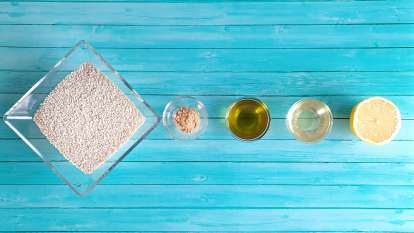
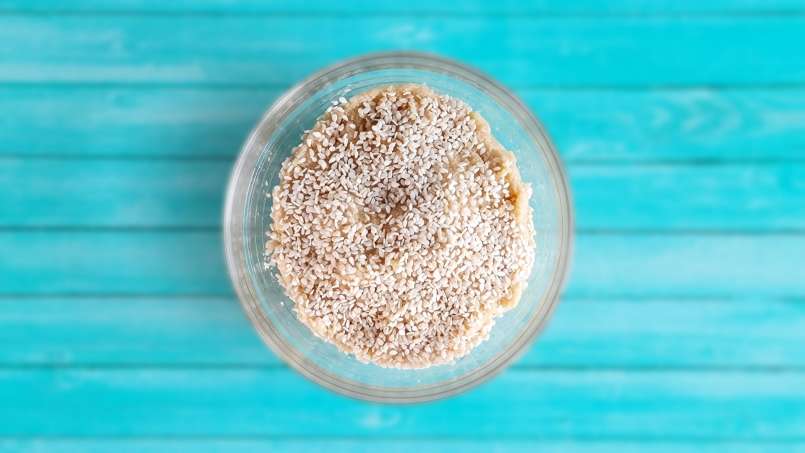
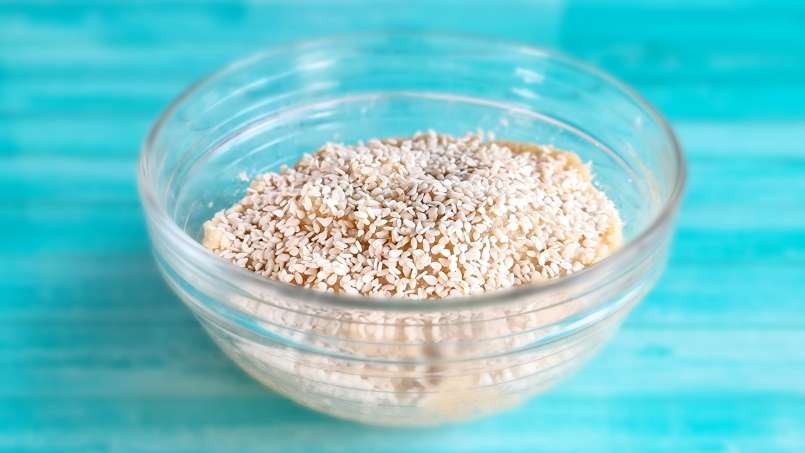
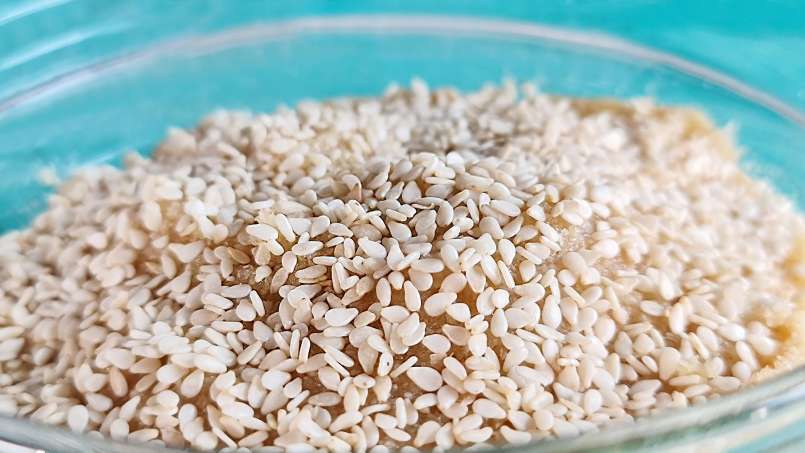
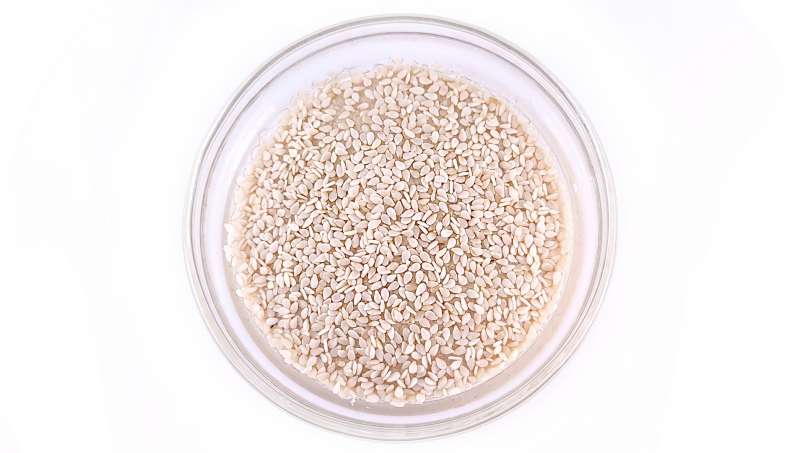
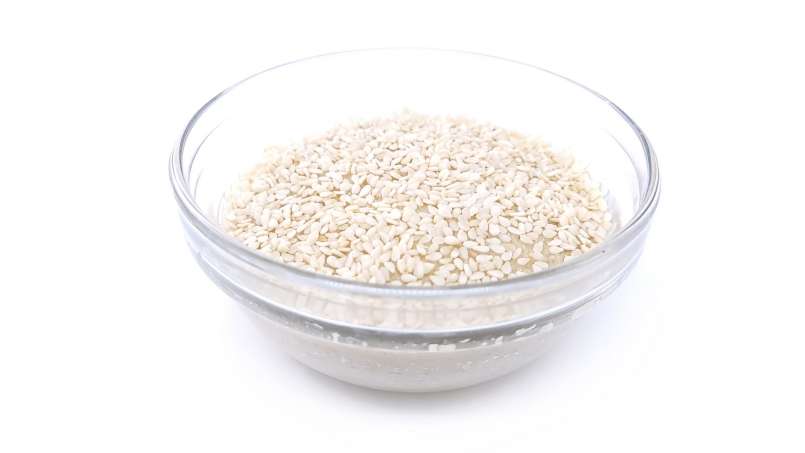
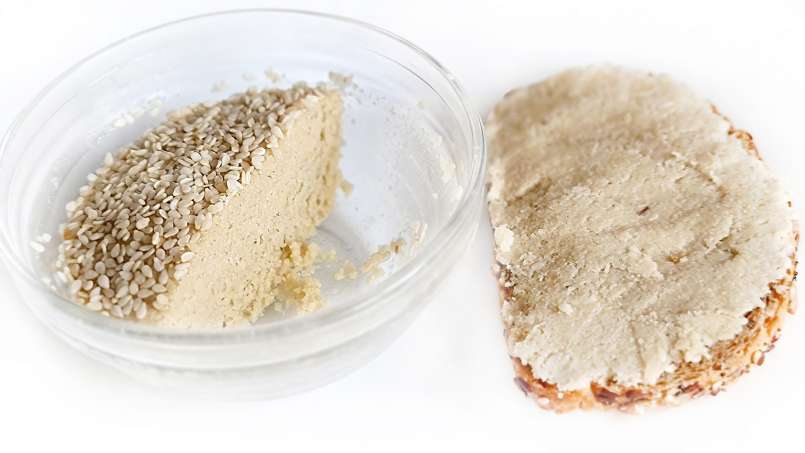
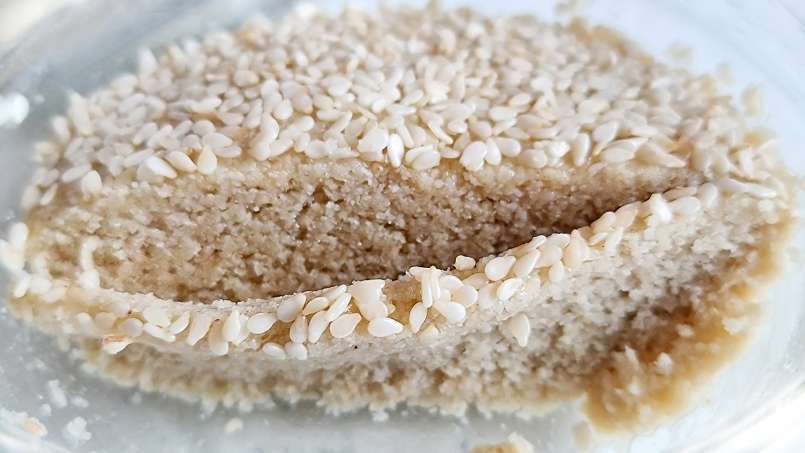
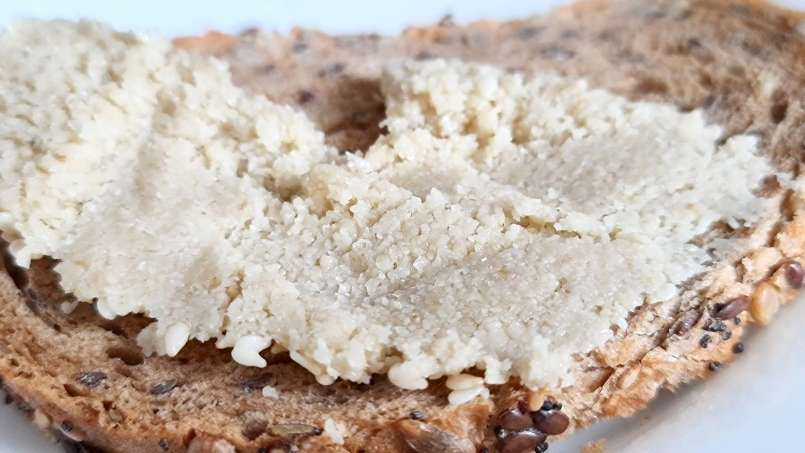
Comments